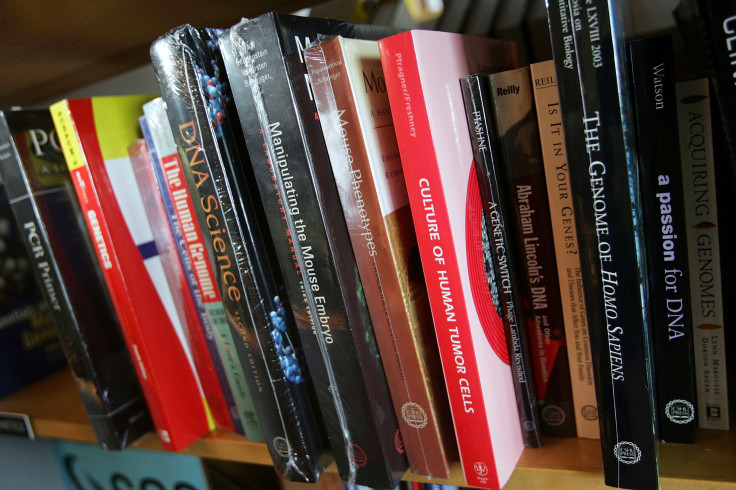College Textbook Prices Have Risen Over 1,000% Since 1971

Textbook prices in the United States have risen three times the rate of inflation from January 1977 to June 2015, a 1,041 percent increase, data from the Bureau of Labor Statistics (BLS) show, as NBC News reported Monday in a series on the rising cost of a college education. Several experts said the soaring prices of textbooks can be attributed to textbook publishers who market to professors instead of students -- the consumers who actually purchase their goods.
As the price of college continues to rise and more students are saddled with a lifetime of student loan debt, rising textbook prices can affect the financial feasibility of higher education for many students. More than 40 million Americans currently have student loans, owing more than $1.2 trillion, either from the government or private lenders, say statistics from the Consumer Financial Protection Bureau (CFPB), as CNN reported.
"They've been able to keep raising prices because students are captive consumers. They have to buy whatever books they're assigned," said Nicole Allen, a spokeswoman for the Scholarly Publishing and Academic Resources Coalition, to NBC News.
While publishers pursue professors to make their books required reading -- much like drug companies court doctors to push pills -- there is no textbook insurance for students to avoid the out-of-pocket costs that are beyond their control.
"Professors are not price-sensitive, and they then assign [specific books], and students have no say," Ariel Diaz, CEO of Boundless, a free and low-cost textbook publisher, told NBC News.
Meanwhile, the average cost of tuition has increased massively. Although annual college enrollment has still doubled since 1971, the average cost of tuition and fees for one year at a private, nonprofit four-year university is more than 17 times its 1971 rate, rising from $1,832 to $31,231, pricing many students out of the market, NBC News reported in June as part of the same series.
Marisa Bluestone, a spokeswoman for the Association of American Publishers, told NBC News that the BLS data was "misleading" because of the "law of small numbers," where an increase in a textbook price from $50 to $100 will be appear to be a 100 percent increase, while tuition, rising at a 5 percent rate, could cost students thousands of dollars.
© Copyright IBTimes 2024. All rights reserved.





















